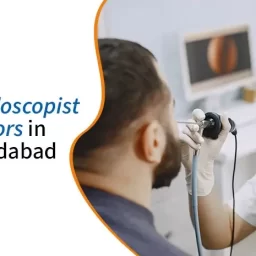
Allergic rhinitis, often called hay fever, is a common condition affecting millions of people worldwide. It occurs when the immune system overreacts to airborne allergens like pollen, dust mites, pet dander, or mold, causing a variety of uncomfortable symptoms. If you’re in Ahmedabad and struggling with persistent allergy symptoms, Aashwi ENT Hospital offers specialized care to help you find relief. Let’s dive into what allergic rhinitis is, its symptoms, and the treatment options available.
What Causes Allergic Rhinitis?
Allergic rhinitis happens when your body mistakes harmless substances—like pollen, dust, or animal fur—for harmful invaders. In response, it releases chemicals like histamine, which triggers allergy symptoms. Seasonal allergic rhinitis, or hay fever, is often triggered by pollen during specific times of the year, while perennial allergic rhinitis can occur year-round due to indoor allergens like dust mites or mold.
Common Symptoms of Allergic Rhinitis
The symptoms of allergic rhinitis can range from mild to severe and often resemble the common cold. Here are some of the most common signs:
- Sneezing, sometimes in fits
- Runny or stuffy nose
- Itchy or watery eyes
- Postnasal drip (mucus running down the back of your throat)
- Itchy throat, nose, or ears
- Fatigue, particularly during allergy flare-ups
If you’re experiencing these symptoms regularly, it’s essential to consult an expert to properly diagnose and treat the condition.
Diagnosis of Allergic Rhinitis
Diagnosing allergic rhinitis starts with a thorough evaluation of your symptoms and medical history. At Aashwi ENT Hospital, specialists may perform allergy tests, such as skin prick tests or blood tests, to pinpoint the specific allergens triggering your symptoms. These tests help in crafting a personalized treatment plan, ensuring you get the best care tailored to your needs.
Treatment Options at Aashwi ENT Hospital
At Aashwi ENT Hospital, the goal is to not only manage the symptoms of allergic rhinitis but also improve your quality of life. The treatment options include:
1. Avoiding Allergens
The first step in managing allergic rhinitis is to avoid the allergens causing the reaction. This can involve staying indoors during high pollen seasons, using air purifiers, or regularly cleaning your home to reduce dust and pet dander.
2. Medications
Aashwi ENT Hospital offers a range of medications to control allergic rhinitis. These may include:
- Antihistamines to block the effects of histamine and reduce sneezing, itching, and runny nose.
- Nasal corticosteroids to reduce inflammation in the nasal passages.
- Decongestants to relieve nasal congestion.
- Leukotriene modifiers that block certain immune system chemicals involved in allergic reactions.
3. Immunotherapy (Allergy Shots)
For those with severe or persistent symptoms, immunotherapy may be recommended. This involves receiving regular injections containing small amounts of the allergens over time, gradually desensitizing your immune system and reducing your reaction to allergens.
4. Surgery for Severe Cases
In some instances, surgical intervention may be necessary, especially if you have nasal polyps or structural abnormalities contributing to your symptoms. The specialists at Aashwi ENT Hospital can assess whether surgery is the right option for you.
Specialized Care for Allergic Rhinitis at Aashwi ENT Hospital
With years of experience and a dedicated team of ENT specialists, Aashwi ENT Hospital in Ahmedabad is well-equipped to handle allergic rhinitis cases. They offer personalized treatment plans that address the root causes of your allergies, helping you live more comfortably. Whether through medication, lifestyle adjustments, or advanced treatments like immunotherapy, Aashwi ENT provides comprehensive care for those suffering from allergies.
If you’re tired of dealing with allergy symptoms and need expert advice, Aashwi ENT Hospital is here to help you breathe easier and enjoy life without the constant sneezing and congestion. Book an appointment today to explore your treatment options!

















